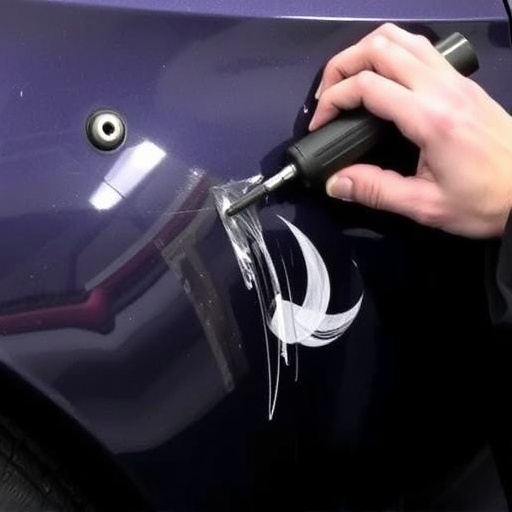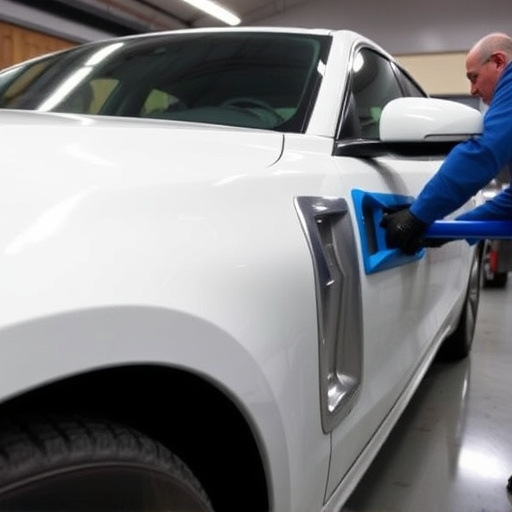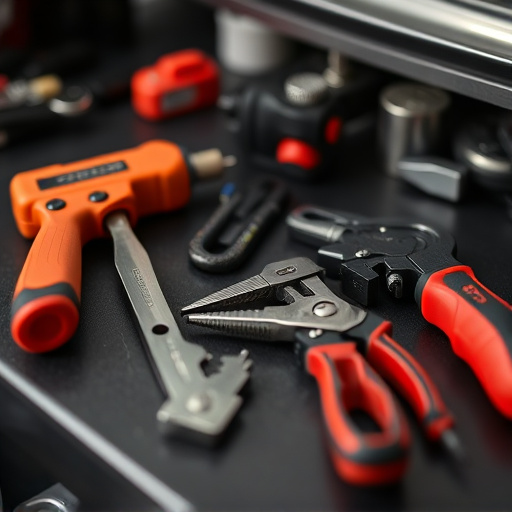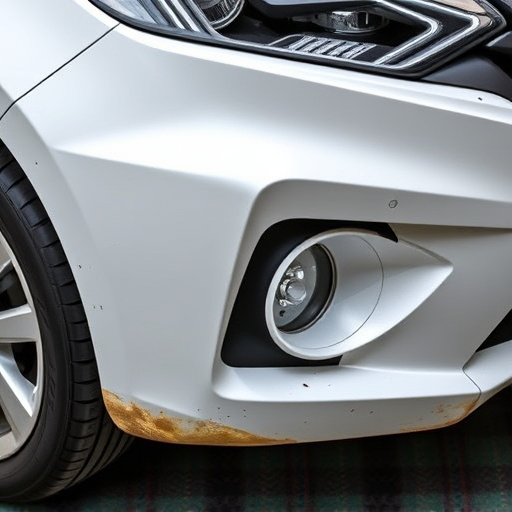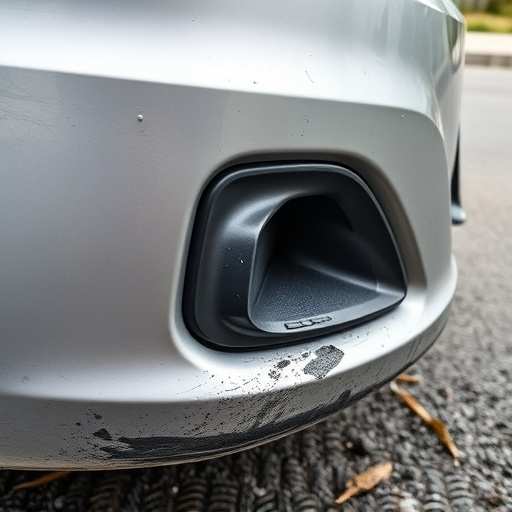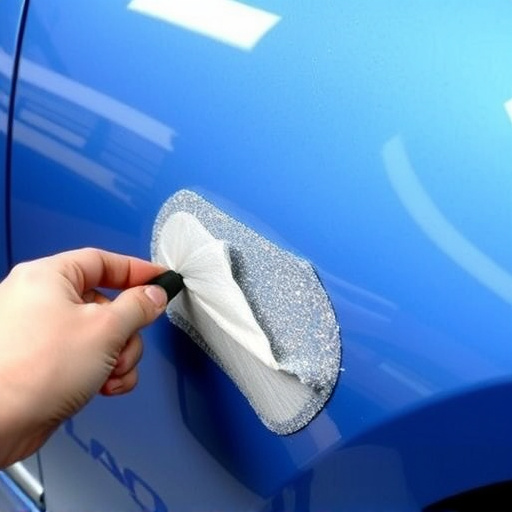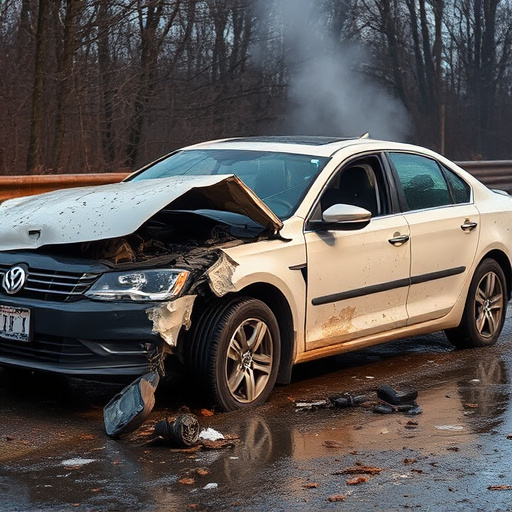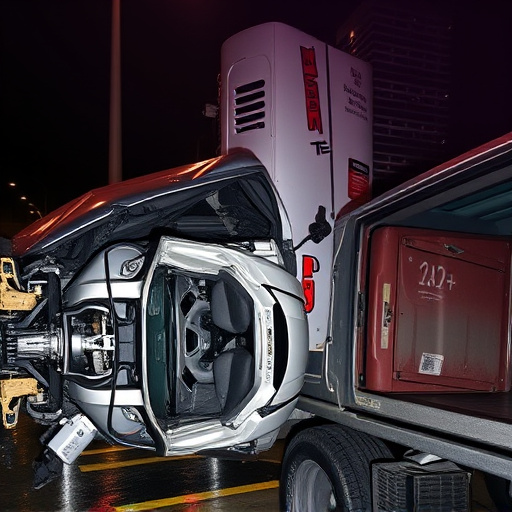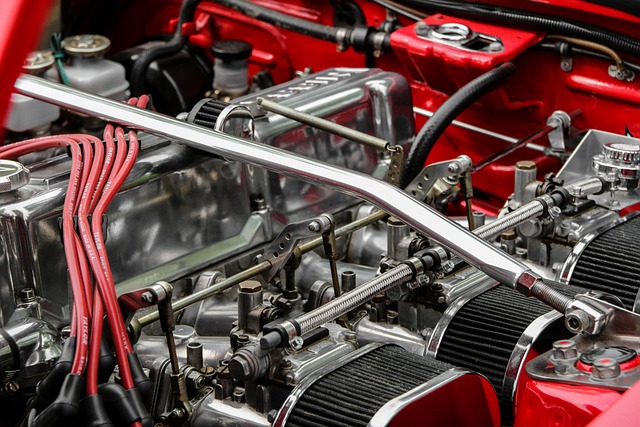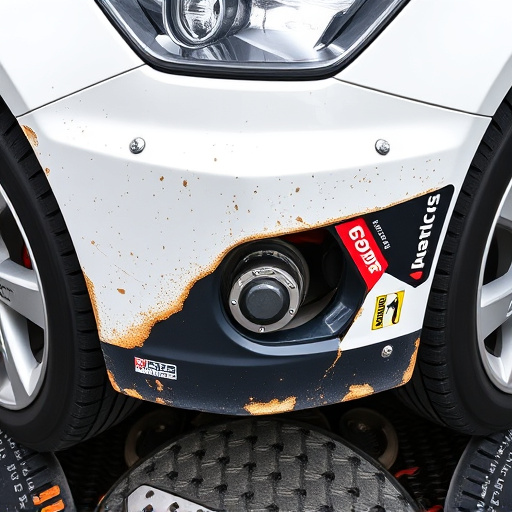Regular Mercedes impact sensor calibration is crucial for maintaining optimal vehicle safety systems. It ensures sensors accurately detect and measure collision forces, enabling swift airbag deployment. Inaccurate sensors can lead to life-threatening malfunctions. Routine calibration maintains system integrity, extends lifespan, and improves performance, enhancing safety and efficiency on the road. Scheduled checks by certified professionals using advanced tools are best practices, especially post-collision or major repairs.
Mercedes impact sensor calibration is a critical process that ensures the consistent and reliable performance of the vehicle’s safety systems. Understanding how this technology works is key to enhancing overall driving safety. Regular calibration offers numerous benefits, including improved sensor accuracy and reduced inconsistent readings. By following best practices for maintenance, drivers can ensure their Mercedes’ sensors remain in optimal condition, ultimately preventing potential hazards on the road.
- Understanding Mercedes Impact Sensor Calibration
- Benefits of Regular Calibration for Sensors
- Best Practices for Maintaining Consistent Performance
Understanding Mercedes Impact Sensor Calibration

Mercedes impact sensor calibration is a critical process that ensures the vehicle’s safety systems function optimally. This calibration involves adjusting and fine-tuning the sensors responsible for detecting and measuring the force and intensity of impacts during a collision. A well-calibrated impact sensor is crucial in accurate data transmission, enabling the vehicle’s airbag system to respond swiftly and effectively during an accident.
Regular maintenance and calibration are essential, especially after a fender bender or any incident that might have affected the sensors’ integrity. Auto repair shops specializing in Mercedes vehicles offer advanced diagnostic tools and expertise to perform this task accurately. By keeping impact sensors calibrated, vehicle repair services contribute to enhancing overall safety performance, ensuring passengers’ protection in case of unexpected collisions.
Benefits of Regular Calibration for Sensors
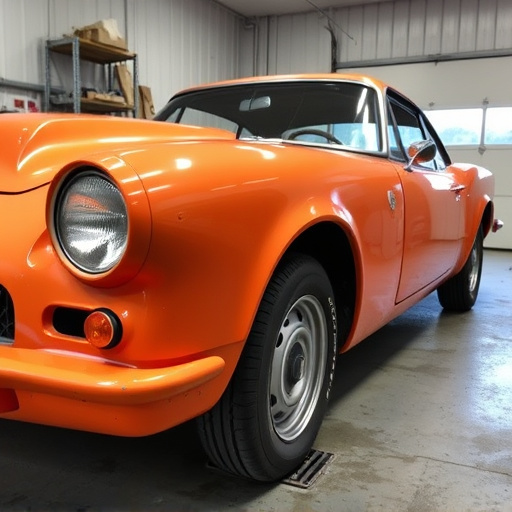
Regular calibration of sensors is an essential aspect of vehicle maintenance that often goes unnoticed until issues arise. For Mercedes impact sensors, in particular, this practice offers numerous advantages. Firstly, it ensures consistent and accurate data readings, which are critical for the safety features of your vehicle, including airbags and crash detection systems. These sensors play a vital role in the car’s structure, much like how a painter relies on precise tools to create a vibrant, intricate tapestry. Inaccurate or inconsistent sensor performance can lead to potentially life-threatening malfunctions during a collision, underlining why regular calibration is a crucial part of automotive repair.
Moreover, routine calibration helps maintain the integrity of various systems in your Mercedes, extending its lifespan and improving overall performance. It’s akin to ensuring that a painter’s tools are always fine-tuned, allowing them to deliver consistent, high-quality work. In terms of car paint services or tire services, vehicle sensors require regular attention too—after all, they contribute to the overall safety and efficiency of your ride, just as a fresh coat of paint enhances a car’s appearance and tires provide the necessary traction for optimal driving. By keeping these components well-calibrated, you’re not only preventing inconsistent performance but also promoting the longevity of your Mercedes.
Best Practices for Maintaining Consistent Performance
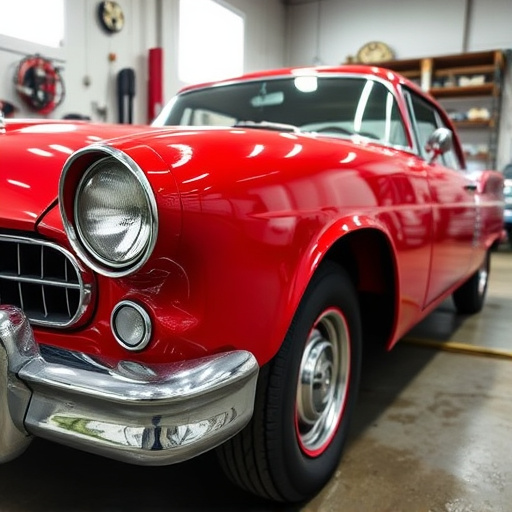
Maintaining consistent sensor performance is paramount for Mercedes vehicles, especially regarding impact sensors crucial for safety systems. To ensure optimal operation, regular Mercedes impact sensor calibration is essential. This process fine-tunes the sensor’s readings, preventing inconsistent or faulty data transmission. A well-calibrated sensor guarantees accurate collision detection and rapid response during emergencies.
Best practices for upkeep involve scheduled checks by certified automotive repair services professionals who utilize advanced tools to calibrate sensors precisely. Additionally, after any collision repair or significant car repairs, a recalibration should be considered to account for potential shifts in sensor performance. Regular maintenance not only bolsters safety but also extends the lifespan of these critical components within your vehicle’s sophisticated systems.
Mercedes impact sensor calibration is an essential practice for maintaining consistent and reliable vehicle safety systems. By regularly calibrating these sensors, drivers can ensure optimal performance, enhancing overall vehicle safety. Through proper maintenance and adherence to best practices, owners can prevent inconsistent sensor readings and address potential issues before they become serious. Investing time in understanding and implementing this process is crucial for keeping both the vehicle and its occupants protected on the road.
